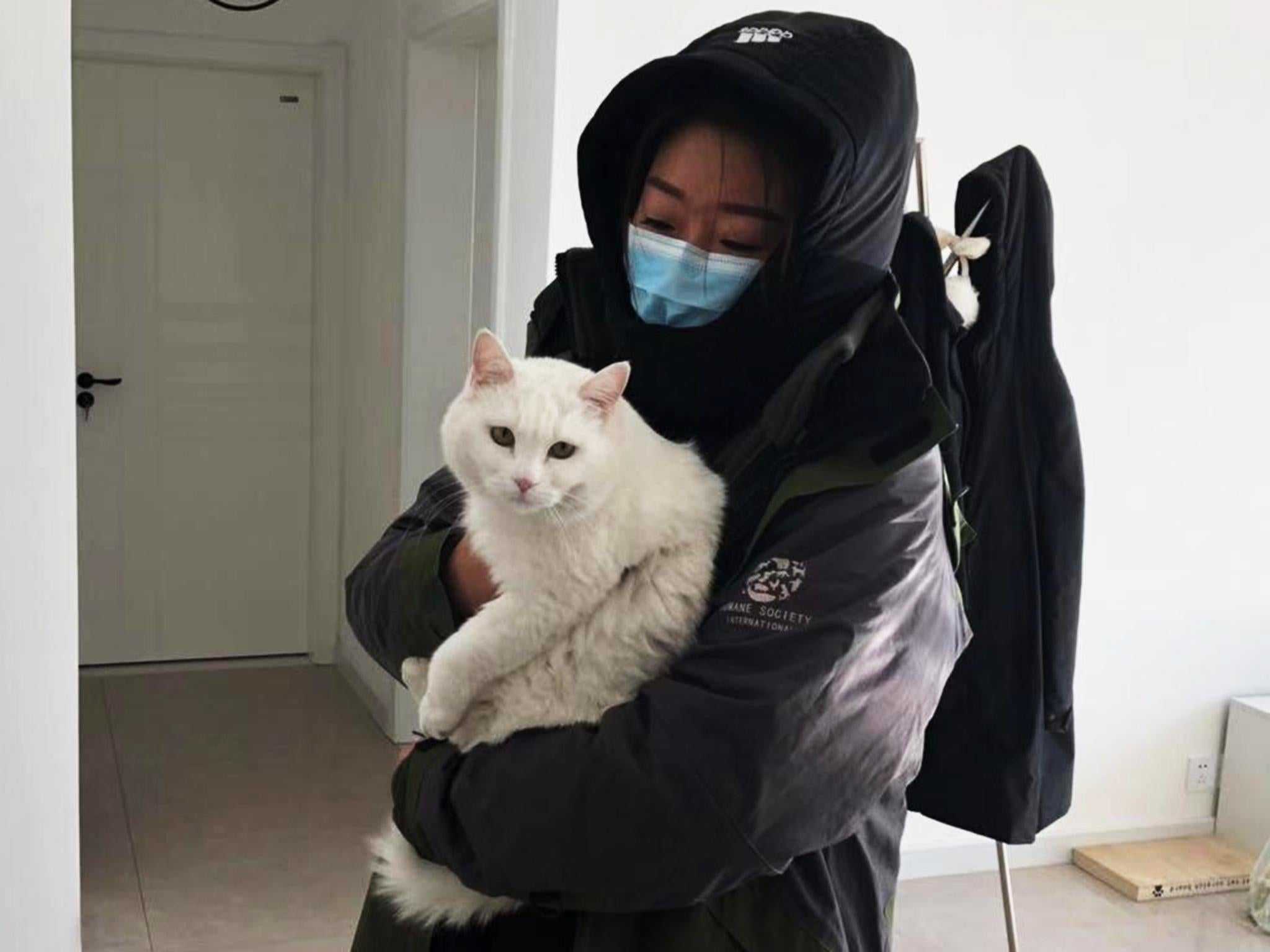Pets and Coronavirus: The truth behind the ‘fake news’ headlines
Our four-legged friends cannot contract Covid-19, yet many false reports are putting them in danger, says Marie Carter

Despite the World Health Organisation (WHO) stating that pets, ergo all “animals”, cannot get or transmit coronavirus, there persists a dangerous ignorance that is causing pets to be put to their deaths at worst, or sent to already under-pressure animal shelters, at best.
The WHO, and others such as the US Centres for Disease Control and Prevention (CDC), have clearly stated that pets cannot contract and therefore transmit the virus. WHO states: “At present, there is no evidence that companion animals/pets such as dogs or cats can be infected with the new coronavirus.” And yet, pets are being put to their deaths. The Chinese government is paying civilians to slaughter stray dogs, and the dangerous myth looks set to fester, causing untold suffering to our beloved companion animals.
It all started with the little pomeranian dog from Hong Kong, cute and endearing in the copious media photos cuddled up to his owner. The dog had “contracted” Covid-19 and was in quarantine, was the ubiquitous headline. Less prominence was given to the scientific evidence that the dog probably didn’t actually have the disease, but its “diagnosis” was actually a “false positive”. The dog, the scientists explained, may have had evidence of the virus on its fur, from its human, who did have the virus.
Fake news has never been so glaringly true or dangerous, as this increasingly worrying case of the dog from Hong Kong. Despite this one dog in the entire world being tagged with actually suffering from the virus, which it never actually was, scientists including those at the esteemed WHO cannot dispel the hysteria – created and compounded by the media – that the dog somehow, impossibly, contracted, suffered from, and died as a result of Covid-19. Yes, “died”. The dog died last week, probably, say the scientists, from the “stress” of being quarantined and the fact that it was very elderly at 17. It did not die from the virus however, because, and I repeat, our pets cannot contract Covid-19.
And yet still seemingly responsible news organisations such as The Daily Mirror are content to disseminate alarmist, and dangerous, headlines like “First Dog to Catch Coronovirus Dies” while completely showing up their headline as pure clickbait in the body of their article: “The 17-year-old Pomeranian from Hong Kong, which had been cleared of Covid-19 after initial suspicions of the infection were proven unfounded despite a ‘weak positive’ diagnosis, passed away on Wednesday, just two days after returning home,” writes the reporter. But, tragically, the damage has already been done by this, and other irresponsible, headlines. Many, many people will never read past the sensational headline, subliminally skim reading their Facebook news feed or news snippets from elsewhere. They will now be convinced that the dog died from the virus, despite even this article, stating categorically (although far too late) that the dog did not actually die from Covid-19.
Irresponsible reporting encourages people to sit up and stare, not often reading, or taking in, anything past the headlines
As an editor of a pets magazine, I subscribe to alerts and news feeds that mention pets. Over the past couple of weeks, as the Covid-19 health crisis has rapidly worsened, I have become increasingly alarmed by the worrying noises off surrounding the issue of pets and the virus. This has led to some hysteria where people, particularly in China, have horribly and tragically thrown their pets from balconies or had them euthanised – completely and utterly unnecessarily.
The hysteria surrounding the virus, perfectly encapsulated by the fervid panic buying of loo roll, is starting to have rather more tragic consequences. There have been reports in the UK of worried people abandoning their pets at pet shops. Irresponsible reporting encourages people to sit up and stare, not often reading, or taking in, anything past the headlines.
The situation is particularly bad in China, where Covid-19 originated and which already has a parlous record for animal welfare, with its infamous “dog and cat meat festivals”. One volunteer from Furry Angels Heaven in Wuhan told the BBC that they’d rescued a lot of dogs, and most were abandoned by their owners. The volunteer said some of the dogs are coming from owners with coronavirus and who are quarantined. They wished to be anonymous, as she has 35 dogs and 28 cats she’s helping care for and she didn’t want repercussions from Chinese officials. There are many more stories of abandoned pets in China alone.
Several cats were thrown to their deaths this week in Shanghai while many dogs were also killed. Such shocking incidents were sparked after a Dr Li Lanjuan told Chinese state TV: “If pets come into contact with suspected patients, they should be quarantined.” Oddly, a local media outlet then reportedly changed her words to the fake news line ‘cats and dogs can spread the coronavirus”.
Animal rights group Peta has urged Chinese officials not to use the coronavirus outbreak as “an excuse to abuse animals”.
Meanwhile the charity Humane Society International (HSI), which is working with 35 Chinese animal shelters, said the government-sponsored culling of street dogs in Beijing, Tianjin, Shandong, Heilongjiang, Hebei, Wuhan, Shanxi, Shanghai has continued to spread panic.
The dangerous myth of animal to human transmission of this pandemic looks set to, very tragically, continue – unless news organisations start to be much more responsible with reporting. After all, fake news can, and will, kill.
Marie Carter is the editor and publisher of ‘Pets Magazine’, a unique leading lifestyle magazine for pet owners
Follow Pets Magazine on Twitter. Follow Pets Magazine on Facebook
Join our commenting forum
Join thought-provoking conversations, follow other Independent readers and see their replies
Comments